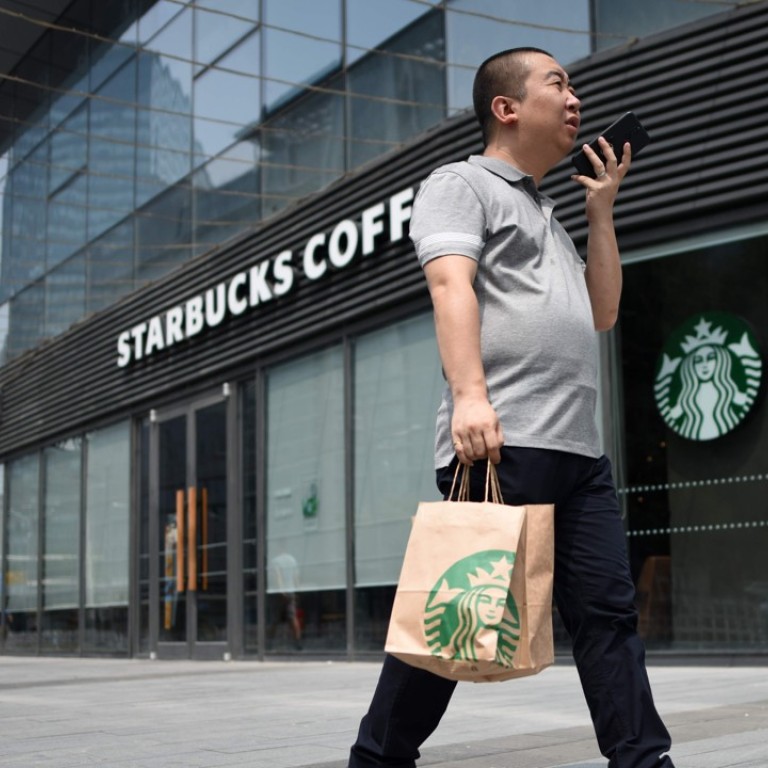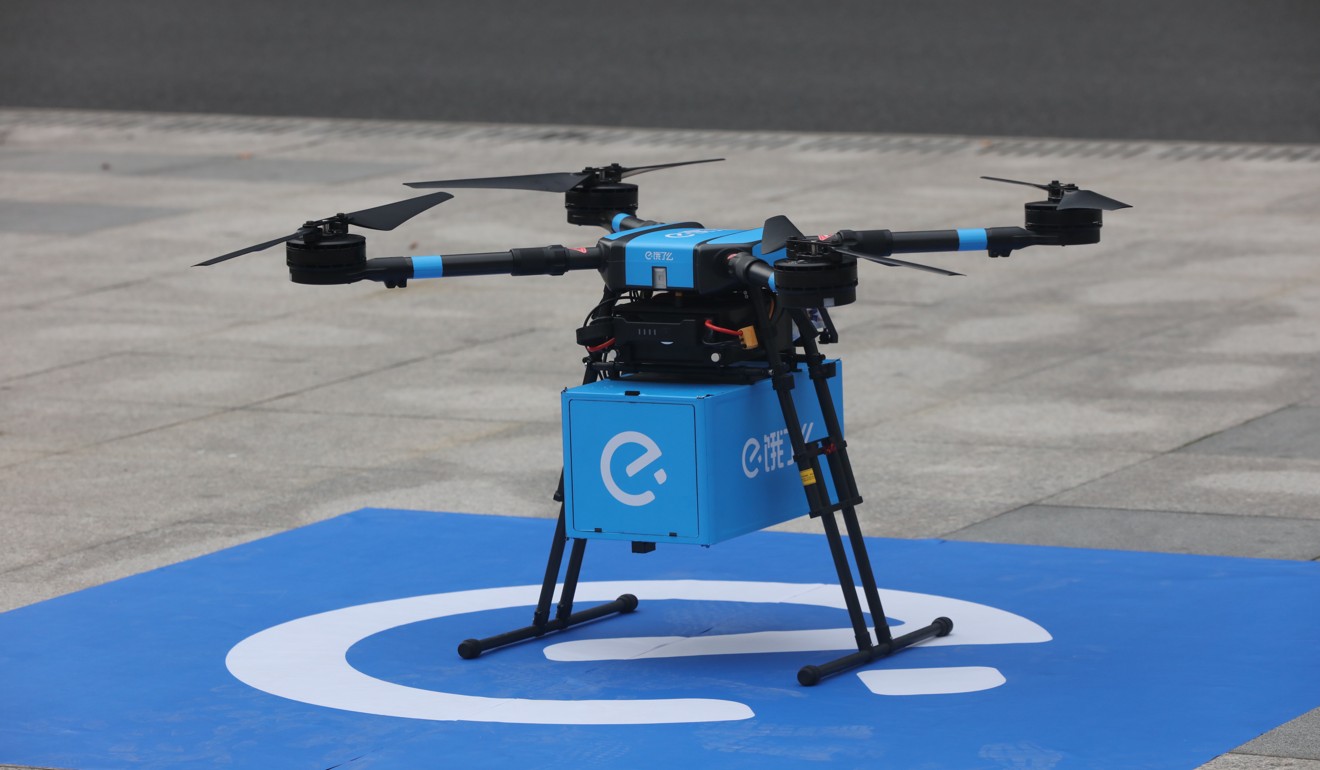
Alibaba expands Starbucks delivery service to more Chinese cities as it ramps up competition with Luckin
- The market for on-demand delivery is crucial for Chinese internet giants as it opens up an entry point to other services such as online payments
- Starbucks and Luckin are vying for a bigger share of a fast-growing coffee market in the world’s most populous nation
Alibaba Group Holding’s on-demand delivery services unit Ele.me plans to expand a Starbucks coffee delivery service across more Chinese cities as it ramps up competition with a raft of new entrants including beverages upstart Luckin Coffee, which is backed by Tencent Holding.
Starting from October 22, customers in nine new cities will join those in Beijing and Shanghai in being able to receive Starbucks coffee deliveries direct to their door, courtesy of Ele.me, Alibaba said on Friday.
Starbucks started delivery services in September in Beijing and Shanghai following the announcement of a partnership with Alibaba the previous month. The service is expected to expand to “more than 2,000 stores across 30 cities by the end of the year,” Belinda Wong, chief executive of Starbucks China, said in a statement.
The market for on-demand delivery is crucial for Chinese internet giants as it opens up an entry point to other services such as online payments, and also provides further insights into consumer spending patterns. The expansion also comes amid intensifying competition in China with a partnership forged by Tencent and Luckin in September, which leverages the ecosystem of WeChat, Tencent’s dominant messaging, social media and payment app.
Coffee-and-bakery chain Luckin, which began operations in November 2017, has staked out its claim to be a domestic challenger to Starbucks in China. “Starbucks is a great company and has done tremendously well, especially in educating Chinese consumers about coffee,” said CEO Qian Zhiya earlier this year. “But it does not equal coffee in China and neither is it the sole contender,” she said, adding that all countries have local coffee brands.
About 44 per cent of Luckin shops opened as of June were effectively “take-out kitchens”, according to the company, which delivers its coffee using the SF Express delivery firm in less than 20 minutes. The Beijing-based start-up claimed a unicorn-status valuation of US$1 billion after raising US$200 million in July.

It operates 1,003 physical stores in 13 Chinese cities including Beijing and Shanghai and has sold 26 million cups of coffee as of September 3. The start-up expects to operate 2,000 stores nationwide by the end of this year.
Starbucks and Luckin are vying for a bigger share of a fast-growing coffee market in the world’s most populous nation. China’s total coffee consumption surged 16 per cent annually in the past 10 years compared to the world’s average growth of 2 per cent, according to the International Coffee Organization in 2015.
The coffee shop market in China is estimated to be worth over US$4.5 billion as of last year, thanks to years of booming growth, according to Euromonitor data. Starbucks is currently China’s dominant coffee provider with a market share of about 58.6 per cent, according to Euromonitor, yet the Seattle-based firm reported a 2 per cent drop in comparable-store sales in China, a rare sales decline for the chain, for the second quarter of 2018.
Starbucks aims to triple revenue in China over the next five years. It also plans to build about 3,000 new stores in the country over the next few years, doubling the current number of 3,300 stores by the end of 2022, according to a company announcement in May.

